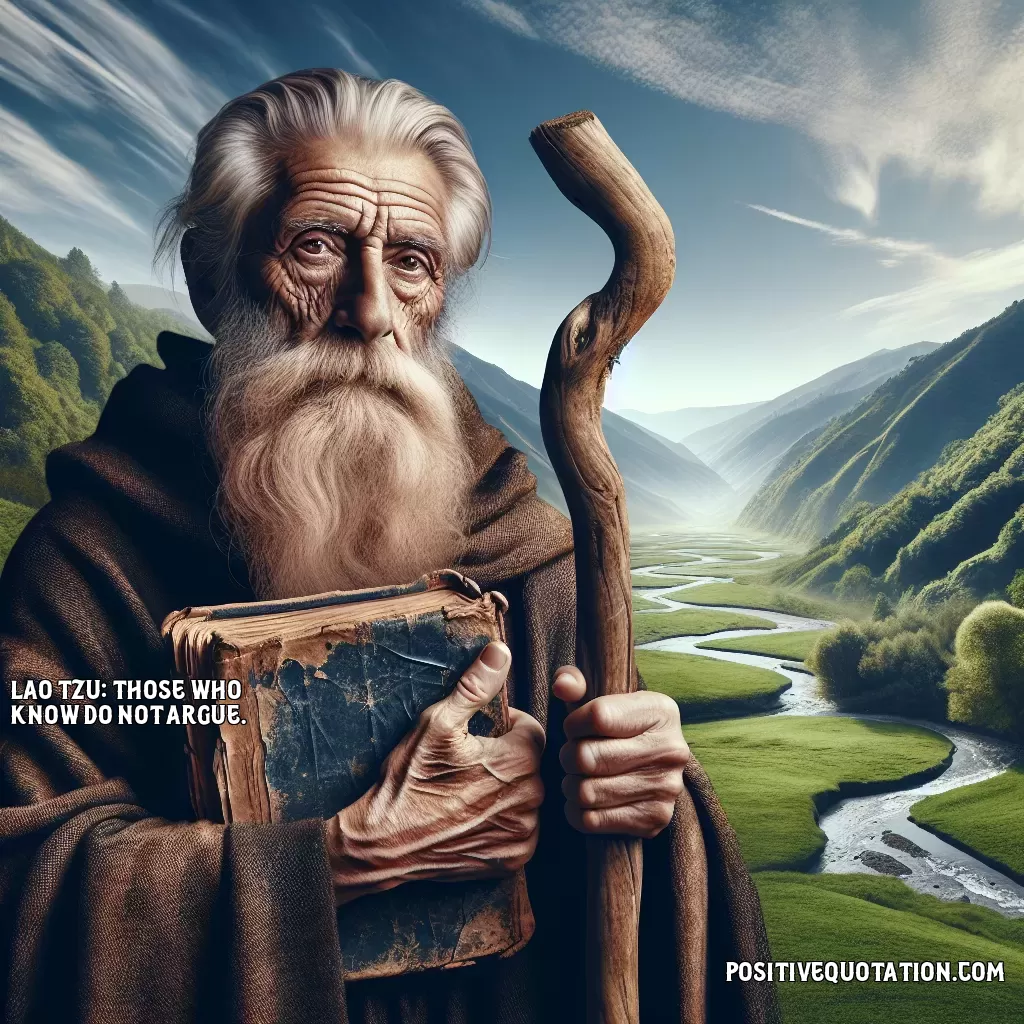
Lao Tzu: Those who know do not argue.
Author: Lao Tzu
👁️ 18 views
Lao Tzu's quote, "Those who know do not argue," offers profound insight into the nature of wisdom and the conduct of those who possess true understanding. At its core, the quote suggests that individuals who have genuine knowledge or deep understanding are not inclined to engage in pointless arguments. This is because their comprehension transcends the need to convince others or to win an argument. They are secure in their understanding and recognize that knowledge is not validated through verbal confrontation. To expand on this, it is important to consider the difference between knowledge and wisdom. Knowledge can be seen as the accumulation of facts, whereas wisdom is the application of knowledge in a way that leads to understanding and peace. Those who are truly wise understand that arguing is often counterproductive. Arguments tend to arise from ego, pride, or the need to assert one's superiority. A wise individual realizes that truth stands independently of one’s opinion and does not require vigorous defense or persuasion. Moreover, engaging in arguments can escalate tensions and lead to conflict, which the wise seek to avoid. They prefer to share their insights through calm discourse or demonstration, allowing others to arrive at understanding in their own time. The emphasis is on patience, empathy, and knowing when it is valuable to speak and when it is wiser to remain silent. In essence, Lao Tzu’s quote celebrates the wisdom that comes with self-assurance, restraint, and the pursuit of peace over confrontation, reminding us that true understanding is reflected in one's ability to remain composed and open-hearted rather than reactive and combative.
Quote By: Lao Tzu
Lao Tzu, an ancient Chinese philosopher and writer, is best known as the founder of Taoism and the author of the "Tao Te Ching," a foundational text that expounds on the principles of living in harmony with the Tao, or the Way. Traditionally believed to have lived in the 6th century BCE, his teachings emphasize simplicity, humility, and compassion, influencing not only Chinese philosophy and religion but also various aspects of art, politics, and culture throughout history. His enigmatic life and wisdom have made him a pivotal figure in Eastern thought.
Bio added on: 2025-02-15 03:30:42